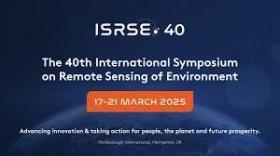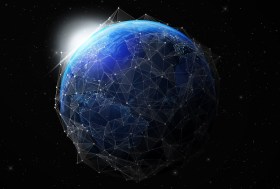
The Indo-Pacific Space & Earth Conference will delve into technologies that can be applied both on Earth and in space — from AI and robotics to remote operations. All industries from mining, oil and gas, agriculture, medicine and more can benefit from investing resources into these technologies.
Supported by key industry players and the government, the goal of the conference is to bring everyone together to discover new innovations and capabilities to create future opportunities.
Image credit: ©stock.adobe.com/au/MclittleStock

Featuring a spotlight on crowd-sourced bathymetry, the Map the Gaps Symposium 2023 will bring people together to learn, share and contribute to ocean discovery.
Held on behalf of GEBCO, this event draws global experts in ocean technology, science and policy to discuss deep and coastal ocean exploration, offshore surveying technology, policy, diversity, equity and inclusion, the Nippon Foundation-GEBCO Seabed 2030 project and GEBCO alumni activities.
Participation is open to all, including industry professionals, explorers, authors, students, researchers, government representatives and emerging technologists. Participants can attend in person or online.
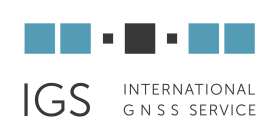
In 2024, the International GNSS Service (IGS) will celebrate 30 years of operational service, having commenced on 1 January 1994.
The University of Bern together with the partners from the CODE consortium — AIUB: Astronomical Institute of the University of Bern; swisstopo: Swiss Federal Office of Topography; BKG: Federal Agency for Cartography and Geodesy, Germany; IAPG/TUM: Institute for Astronomical and Physical Geodesy, Technical University of Munich — invites the GNSS community to celebrate the IGS’ third decade with a symposium and workshop in Bern, Switzerland.
The in-person event is planned for the week from 1 to 5 July in 2024 and will take place in two parts: symposium (1-4 July) and workshop (4-5 July).
The IGS is a service of the International Association of Geodesy (IAG), its Global Geodetic Observing System (GGOS), The International Union of Geodesy and Geophysics (IUGG), and a network member of the International Science Council (ISC) World Data System (WDS).
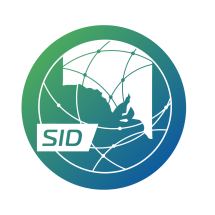
The Geospatial Council of Australia’s Spatial Information Day will be an immersive journey into the dynamic world of geospatial data and technology.
Delegates will have the opportunity to engage with industry leaders, renowned experts and fellow enthusiasts, while delving into the latest advancements reshaping the understanding of space and place. On the agenda will be innovative solutions driving progress across sectors such as urban planning, environment management and disaster response.
The event will be followed in the evening by the 2024 SA Geospatial Excellence Awards Dinner, the industry’s premier platform to celebrate the achievements of top geospatial organisations and individuals in the state.
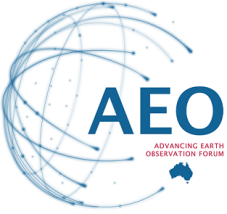
The second Advancing Earth Observation Forum will be held at the Adelaide Convention Centre. The five-day event will attract delegates across a broad spectrum of applications, sensors and interests, including industry, research, defence, government, students and end-users.
The biennial Forum was created to enable the Earth observation (EO) community to communicate, coordinate, collaborate and collectively assess the state of EO in the Australian and Asia-Pacific region.
AEO24 will build on the momentum generated at the inaugural AEO Forum held in Brisbane in 2022, bringing together all sectors involved in EO to propel the sector forward to meet the growing international demand for EO.
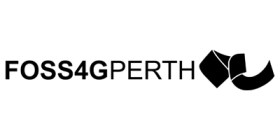
FOSS4G Perth is a local, community-driven gathering of the Perth open geospatial community, focused on sharing news of developments in free and open-source software for geospatial applications.
The event will be an opportunity to share ideas about open-source tools, such as QGIS, PostGIS, OpenStreetMap, Sentinel-2 satellite imagery, Python-based Earth observation libraries and frameworks, GDAL, and many others.
This year’s event will be held in conjunction with the ISPRS Technical Commission IV Symposium.
The 2024 FOSS4G Perth organising committee comprises:
- Bryan Boruff – University of Western Australia
- Cholena Smart – Mammoth Geospatial
- Grant Boxer – Consultant Geologist
- Ivana Ivanova – Curtin University
- John Bryant (Chair) – Mammoth Geospatial
- John Duncan – University of Western Australia
- John Lang – Consultant
- Keith Moss – WA Government
- Michel Nzikou – DMN Solutions
- Nimalika Fernando
- Petra Helmholz – Curtin University
- Piers Higgs – Gaia Resources
- Renee Manser
- Stafford Smith
- Tracey Cousens – Mineral Resources Limited
- Vincent Dinh – GIS Pro
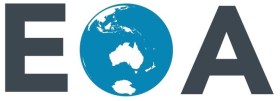
In celebration of the International Day of Women and Girls in Science, Earth Observation Australia will conduct a special webinar that will shine a spotlight on the role women play in Earth observation (EO) science and technology.
This webinar will explore the journeys of women who have overcome challenges to lead ground-breaking work in EO science. The session will highlight their achievements, the barriers they’ve faced, and the importance of mentorship and collaboration in empowering the next generation of women scientists. Attendees will gain insights into fostering inclusive networks and strategies to support women in leadership roles within this critical field.
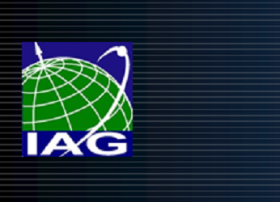
The third International Association of Geodesy (IAG) Commission 4 Symposium will bring together scientists, researchers and professionals working in the broad field of positioning and its applications.
The symposium will serve as a platform for discussing research that leverages current and emerging positioning techniques and technologies. It aims to provide both practical and theoretical solutions across a wide range of topics.
Discussions will address both technical and institutional aspects of developing GNSS backup systems, integrated positioning solutions, resilient PNT systems, and emerging LEO-based PNT techniques. The symposium will also explore space weather monitoring and forecasting through both ground-based and space-based geodetic observations. Additionally, the application of machine learning and artificial intelligence in geodesy will be examined.
The main topics to be covered include:
- Multi-frequency and multi-constellation GNSS technique
- Terrestrial and satellite-based positioning system development
- Multi-sensor fusion navigation and integrity monitoring
- Emerging positioning technologies, e.g., resilient PNT and LEO-based PNT
- Atmospheric space weather monitoring using geodetic observation techniques
- Applications of geodesy to engineering
- Artificial Intelligence technique for geodesy research
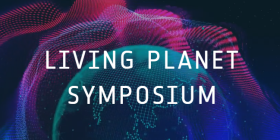
Held every three years, the European Space Agency (ESA) Living Planet Symposium brings together diverse communities with a common interest in using Earth observation data, in a forum to meet and network with space professionals from a wide range of sectors.
Living Planet Symposium 2025 will have an emphasis on transitioning from ‘Observation to climate action and sustainability for Earth’.
The event will provide a forum to discuss the latest findings and applications based on satellite data, and to review the contribution that data and technologies have made and could further make in addressing environmental and societal challenges.
The symposium will also provide a chance for showcasing innovative products, services, missions and initiatives, with the overarching goal of demonstrating how science, society, policy-making, businesses and the economy can all benefit from observations made from space.


